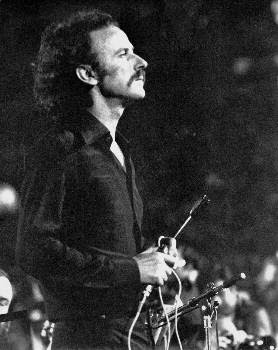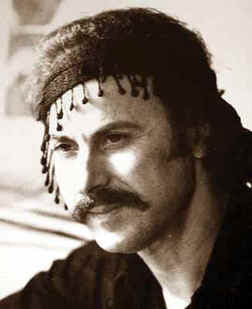

reece was under a military junta between 1967 and 1974. In June 22, 1973 Tzeni Karezi and Kostas Kazakos started the theater play "To megalo mas tsirko" ("Our great circus") at the downtown Athens theater "Athinaion". Stavros Xarchakos did the music, Iakovos Kampanellis the lyrics, and Nikos Xylouris was the lead singer. The play was a satirical historical flashback of the history of Greece from the Ottoman empire to what was then present time. It quickly became extremely popular, and transformed into an act of political resistance against the dictatorship. People would ask at the register "Is this where we vote?".
It wasn't easy to get through the government's censorship. The play was marketed as a comedy to do so. Here is how the play started:
"One final word, ladies and gentlemen. We told you that our play is a comedy, but it is not a comedy because we say so, or because it was written as such. It is a comedy for a much more serious reason. We declared it as a comedy. We submitted it to the control committee as a comedy, and it was approved as a comedy by state decision number 195. By no means I wish to tell you that you are obligated to laugh by law. I am just noting that every similarity of our comedy to a drama is purely coincidental."
The censorship office soon realized their mistake, detained the producers, and shut down the play. But history had already been made. 500000 people are estimated to have seen the play. In 1974, the music of the play was released as an LP, and in 2003 as a CD. Here is one song of the album.
Our great circus [Το μεγάλο μας τσίρκο]
Music: Stavros Xarchakos
Lyrics: Iakovos Kampanellis
Voices: Nikos Xylouris, Tzeni Karezi, and actors
Great news I bring from up there
give me a moment to catch my breath
and think whether I should laugh,
cry, shout, or be silent.
The kings have fled
and now at the port down by the shore,
the allies are sending them away.
As they manipulated and fixed things
from the outset they dag their own pit
and close up our great protectors,
slowly became the grave-diggers
and who is to pay the bill again
and how can I start over again
at least if I knew why.
What else does my fortune tell me
three schemers are studying it.
Priests and pen pushers will let us know
with drums, parades and celebrations.
Cops are holding the constitution
and the courtiers in the palace
are waiting for something new to turn up.
The foreign bankers have glammed up,
the Greek real estate brokers have shaved.
Seven the interest five the make-up
forty with the oil and the vinegar
and he who believed and had patience
dumb and drugged he stands and stares
at the freedom being auctioned.
People, do not tighten the belt anymore,
don't take hunger for glory any more
Your fights do not count
unless they make up for the blood that has been shed.
People, do not tighten the belt anymore,
hunger for glory is for the quitter,
it is for the the slave and it will bury him.







